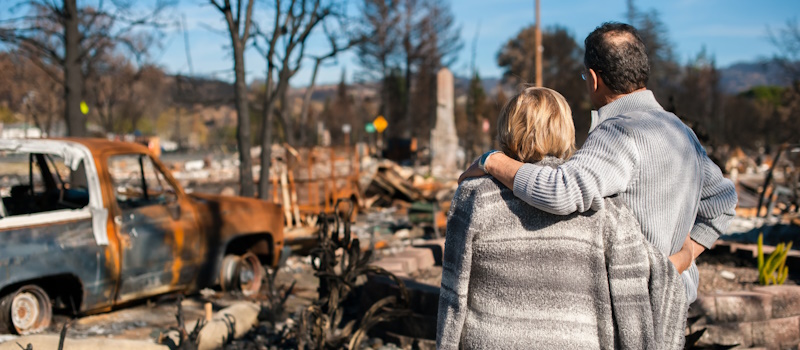Wildfire Recovery: What's Covered For My Home?
Wildfire Recovery: What's Covered For My Home?

Wildfire Recovery: What's Covered For My Home?
According to a 2022 report from the United Nations Environment Program (UNEP), instances of wildfires around the globe are expected to increase 14 percent by 2030. With the threat of more (and more intense) wildfires looming, homeowners across the country should be prepared with emergency/evacuation plans and the right insurance coverage for their properties.
The good news? Most home insurance policies already include coverage for fire damage, including damage caused by wildfires. However, not all insurance policies are created equal, so it's important to look at your declarations and make sure that you're adequately protected.
What's Covered By Insurance
In general, homeowners insurance does cover damage related to wildfires in the form of dwelling coverage. Specifically, this type of insurance is designed to pay for the repair or rebuilding of a home and any attached structures (such as decks or garages) in the event of a wildfire.
Some insurance policies may also include personal property coverage that can be applied as part of a wildfire claim. This helps pay for belongings (such as furniture and electronics) that are damaged or lost in a wildfire.
In the event that your home is uninhabitable as a result of fire or smoke damage, your insurance might also pay for additional living expenses. This may include costs associated with a temporary home rental or long-term hotel stay.
What Might Not Be Covered
Depending on the type of coverage you have, your home insurance policy may not cover certain forms of damage related to a wildfire. For example, some insurance policies might not include protection for landscaping or any detached buildings on your property. This means that if your detached shed is damaged by a wildfire, you could have to pay for repairs or replacement out of your own pocket. The same may apply to any trees, garden beds, or other landscaping around your property.
Tips to Protect Your Home
Even with the right insurance coverage, nobody wants to deal with the aftermath of a wildfire. While there's nothing you can do to guarantee that your home will never be harmed by wildfires, there are some proactive steps you can take to reduce the risk and mitigate damage.
FEMA, for example, recommends removing flammable materials (including playground equipment and combustible vegetation) from a 30-foot or larger radius around your home. Likewise, make sure you have reliable water access on your property. This should include multiple hoses around the perimeter of your home.
If you haven't done so already, now is also a good time to take an inventory of your home for insurance purposes. Photograph each room and take notes about your valuables. Save the serial numbers of any electronics you own and keep receipts for major purchases in a fireproof safe.
Ready for a coverage check-in to make sure your policy is best serving your needs? One of our local agents would be happy to help, so reach out to get started.
